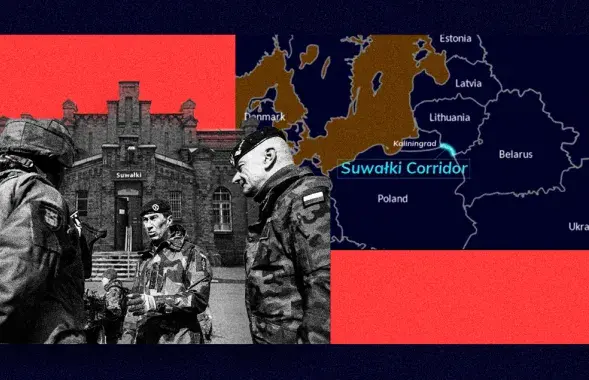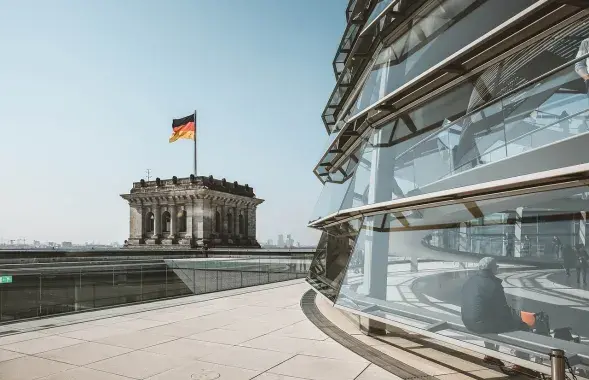Pensioners defying riot police in Belarus. Who are they?
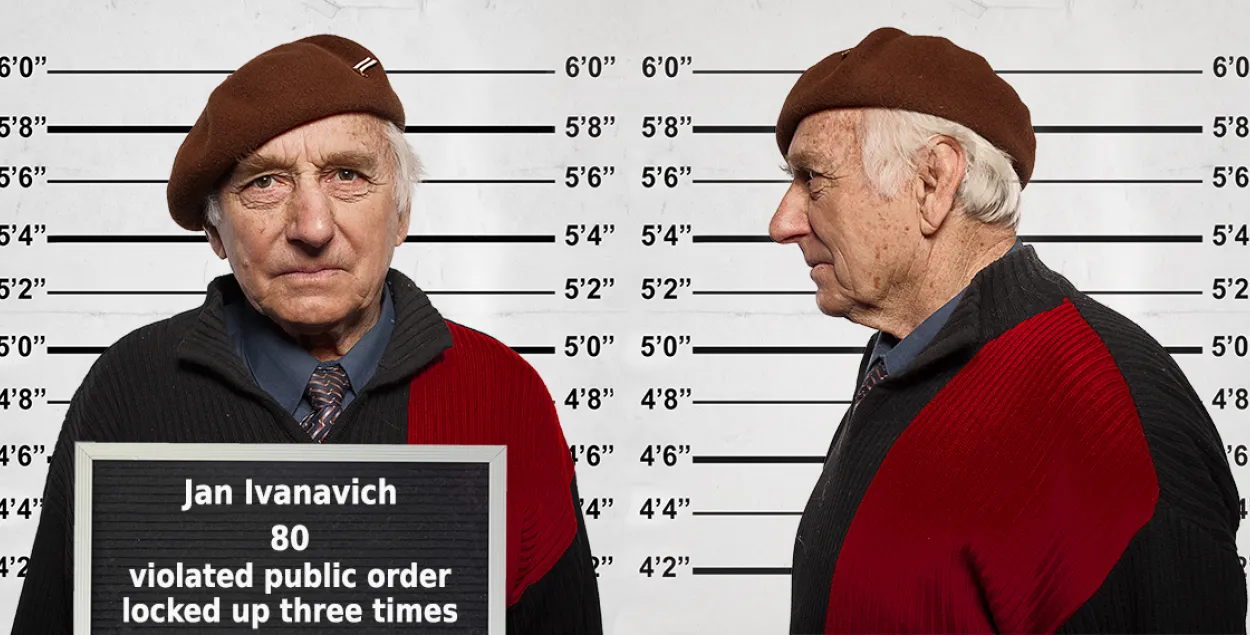
Internet users were shocked to see footage from Minsk where riot police forces were grabbing elderly people into detention during street rallies. Euroradio has found out who those pensioners treated as a threat by the police are.
Jan Hryb, 80, poet: "I feared a fine because with the current level of pension payments it is hard to pay"
"I have taken part in street protests since 1988 when they were organized by Bykau, Khadyka and Paznyak. I was detained maybe 100 times, at least 30-40 times! But I was locked up only three times. On one occasion, I was in the company of a goat. Students had brought it to a protest carrying a name tag that said "President". The police had chased it around but finally caught it and sent along with me to the police station... Previously, fines were not so common. Moreover, international organizations helped to pay them. This time around, I was trying to escape from the police vehicle because I feared a fine. With the current level of pension payments, it is hard to pay. Why do I come out to protest? A normal person simply cannot live through the situation we have in this country. If a person is at least a bit responsible and has some brains, he or she has to do something to change this situation that smacks Fascizm. I realize it is very hard to change something but my soul and heart grow impatient, hoping changes will come."
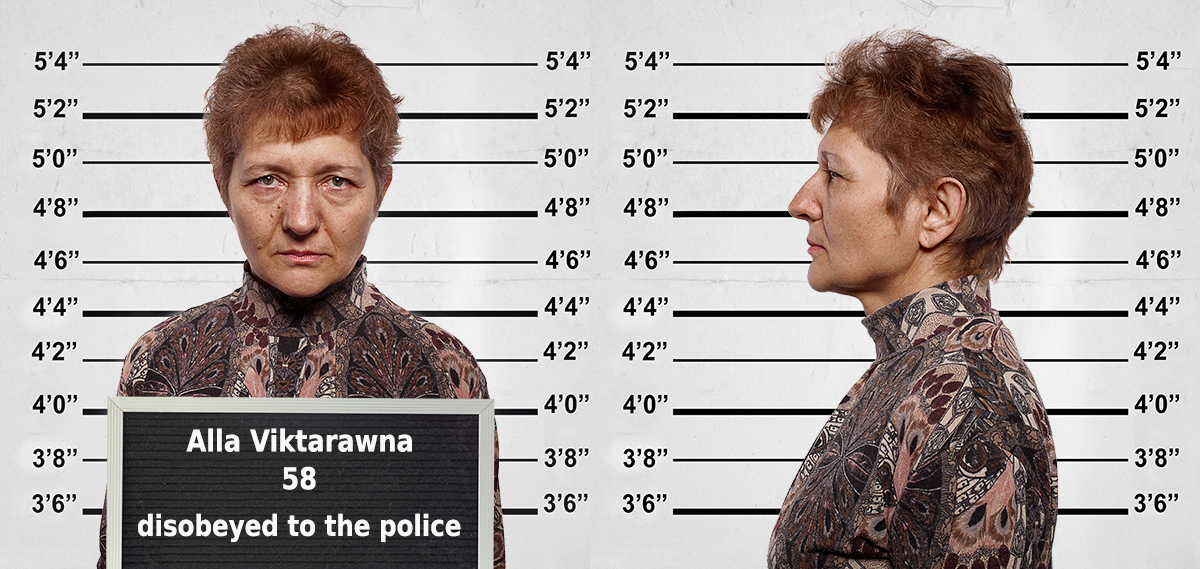
Ala, 58, engineer: “With my presence I want to support people have a difficult life today"
"I have attened all rallies since 1992. After the 1995 referendum I and several friends joined Belarusian Popular Front where we sang in a choir. This time on March 25 I was shown on Euronews: I was greeting a schoolmate with one hand while the policeman was pulling my other hand... I was never grabbed, fined or sentenced with arrest, thank God. After the December 2010 protests and crackdown, people hunkered down in their homes, minding their own business. But now I come out again to support retirees who saw their pensions cut because I was affected myself. With my presence I want to support people who have a difficlt life today.
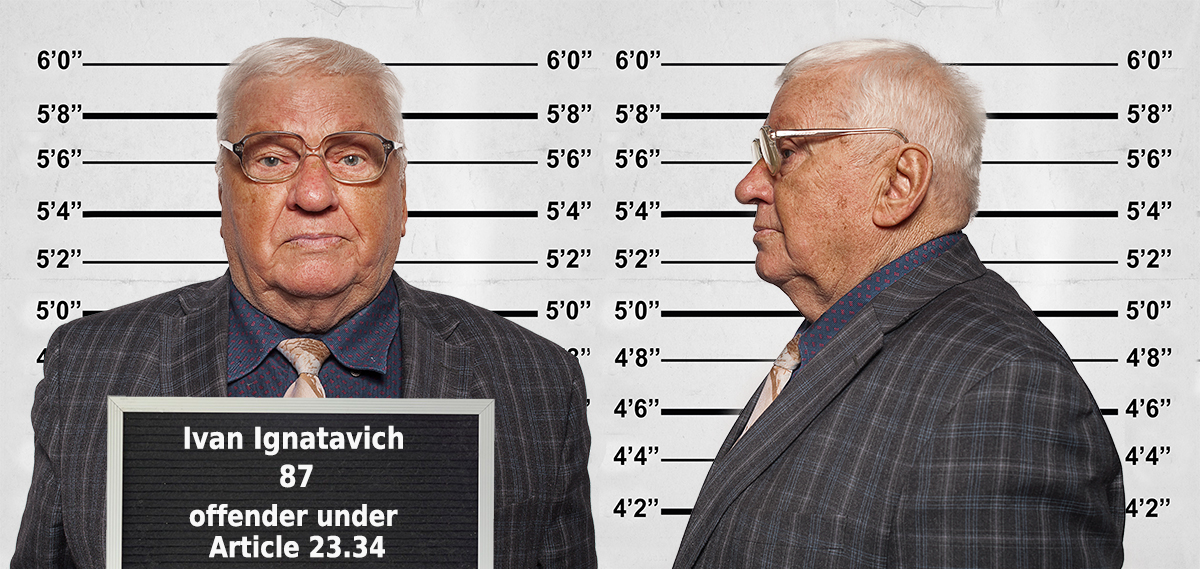
Ivan Antaniuk, 87, retired missile officer: "I stayed away from politics but then got involved after retirement"
“I stayed away from politics but after retirement I chose the path of fighting for a free and independent Belarus. I joined the pro-Belarusian movement. My consciousness dictates me that I must be together with the patriots of our Motherland and revive this country so that it follows the democratic path. A Belarusian abuses another Belarusian - that's the model of this state! I started taking part in street actions as far back as when up to 100 000 people used to come to Independence Square. I remember how Jan Hryb was detained near the Centeal Post Office while I was beaten by a truncheon. From then on, I was cautious. Who would stand up for me? Now I attend only big rallies like Freedom Day. I do not participate in smaller rallies because I have pain in my legs. I had to go on March 25 because I had no other option. I take to streets because I love Belarus and I want to see it as a free and democratic country - the one that Shushkevich began to build."
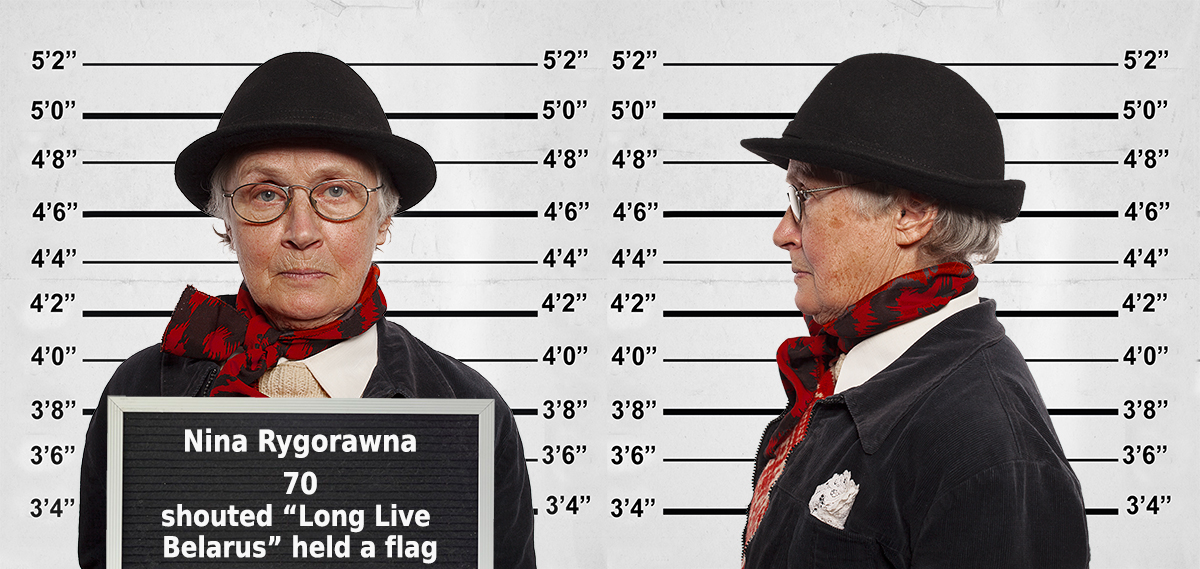
Nina Bahinskaja, 70, geologist: "I don't count the fines because I am physically unable to pay them"
"They write all the same in detention reports for many years: I violate the law on mass events, shout "Long Live Belarus" and hold a white-red-white flag in my hands. I was locked up twice for [street rallies] to celebrate Dziady and Freedom Day. Lately, they have fined me instead of detention. In 2016, the fines amounted to Br130 thousand of the 'old' money ($6500). Today, I received a summons to a court hearing again. But I have stopped attending those hearings and stopped counting those fines because I am physically unable to pay them… I took part in a street rally for the first time in 1988 in the Dziady demonstration. That's where I was baptized into a popular resistance. I reckon it normal and democratic when people can come out to protest either as a group or as a single person when they are discontent with those in power. The authoirities do not revive our ethnic community. They continue Russification. I feel offended when I walk on Kalinin square. I know his story. He did not have guts to protect his wife under repression. A coward! At the same time, there is no monument to Kalinouski. We sit in our pot and must resist to foreigners who impose their language and culture on us. I will continue coming out to protest because I cannot fold hands, sleep quietly and be happy with what is happening in this country.”
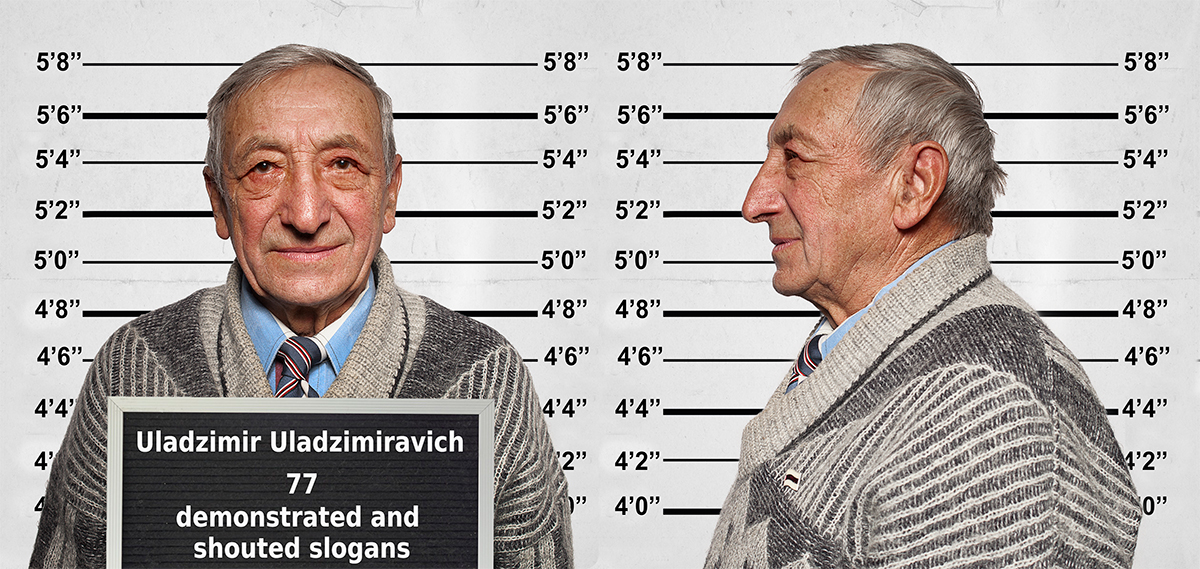
Uladzimir Kaliberda, 76, radio physicist: "I check online where rallies are planned and go there"
“It all started with the Dziady demonstration in 1988. Protests would end diffirently for me: sometimes I was detained, sometime I was beaten with a truncheon. On some occasions, I had to pay a fine. I come to protest because my body cannot stand what is happening here. I don't like deсeption but the person now in power started his career with deception. I used to live in Minsk but now I have moved to my home village in Uzda district. People do not organize rallies there. I used to collect signatures for [opposition presidential candidates] Domash and Chyhir. I regularly come to Minsk to attend rallies. I check online what, when and where is planned and just come. I will also take part in the next one."
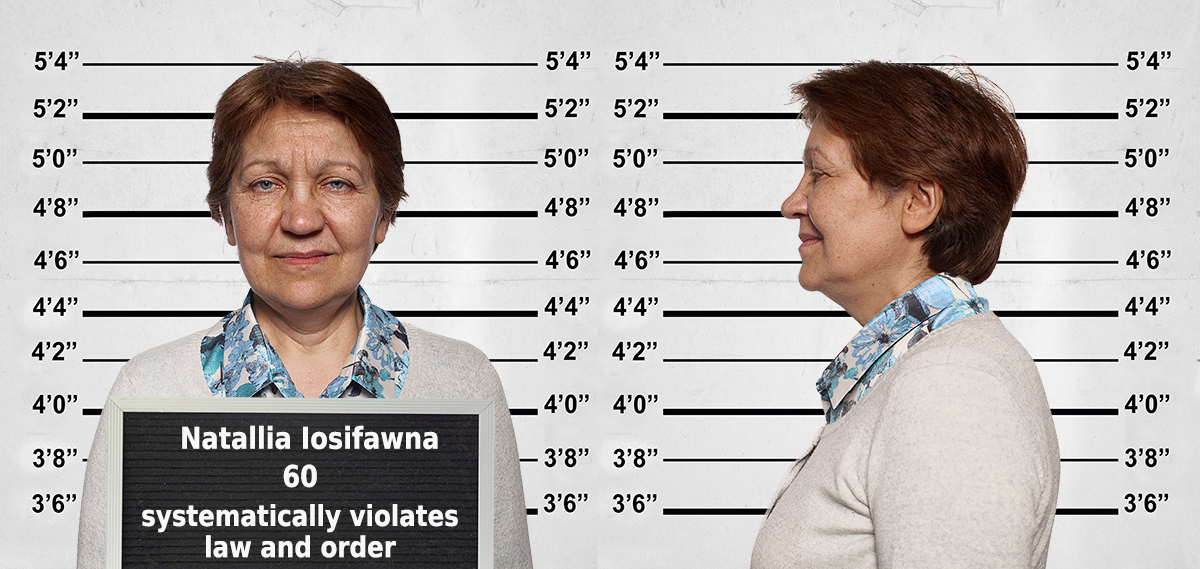
Natallia Klimovich, 60, physicist: "Sometimes, I fear for my family members, so I go there to be next to them"
“It all started with the very first Chernobyl March. My brother went there and was beaten and detained. I was in police custody once. I had a friend - a beautiful lady who spoke Belarusian beautifully. A drunk police colonel kneeled down in front of her and said: when you come to power, we will also serve you.” I am not artistic and my voice is weak but once when people were detained I broke my arm. In 2010, I broke my leg. Why do I come to protest? I do it for several reasons. This time around, I did not follow [opposition politician] Statkevich; I do not expect anything from him. But Freedom Day is just a huge day for me. I walked from Valhahradzkaya street and passed three cordones. In the last cordone they asked me: where are you heading? I said: to the shopping center. They: it is closed. I said: Ok, guys, then I congratulate you with March 25. And the policeman in all his anti-rot gear replied: thank you. I congratulate you too. And he was smiling. Suddenly, other policemen jumped out and started grabbing young men… Sometimes, I fear for my family members. That's why I go there in order to be next to them. Sometimes, I go becuse I have to like for examply when the dead in Kurapaty are calling. Sometimes, I have to; sometimes, I feel ashamed - not even for the sake of protesting, because you will not prove anything to them with protests."
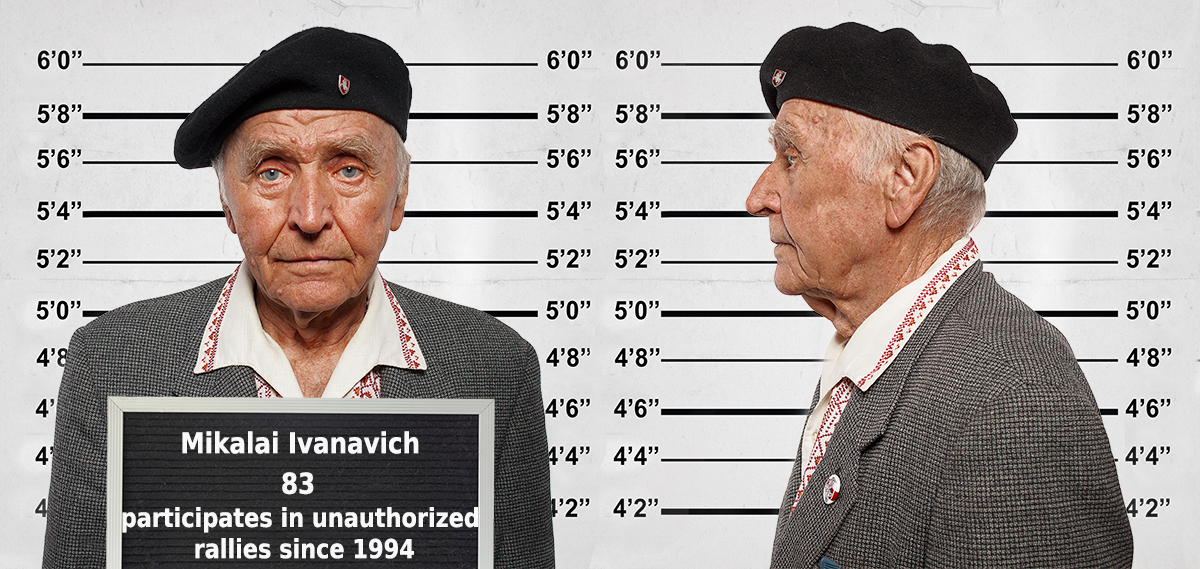
Mikola Savitski, 83, professor: "Firstly, protest actions are like spiritual enrichment for me"
"I think I saw it on a record somewhere that I was the first person arrested in 1994 under the new president. We staged a protest next to the House of the Government as subscribers of Svaboda (Freedom) newspaper which we stopped receiving. We wanted to find out what happened. But the police dispersed us. Police colonel Frantsuzov asked me into the detainee transportation vehicle. Back then, I spent five days in pretrial detention center and went on a hunger strike. In 1996, during the Minsk Spring protests, I was gased and had concussion after a strike with a truncheon on my head. I still feel the consequences. This time I came out to the rally on March 25 because it is a huge day both for me and for the state. It is hard to believe that the state does not celebrate the statehood anniversary. Generally, I was baptized spiritually and morally during the Dziady rally in 1988. I have attended all actions since then, becaue this is spiritual enrichment foe me in the first place. Secondly, as a professor, I always try to see things with my own eyes and draw my own conclusions."

